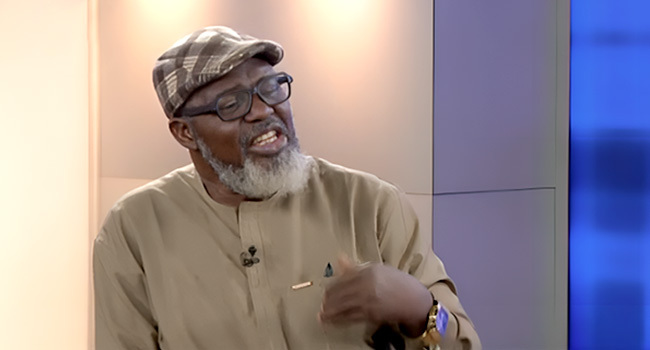A former Minister of Communications, Adebayo Shittu, has expressed disappointment with President Bola Tinubu’s recent cabinet overhaul, describing it as unremarkable.
According to Shittu, the reshuffle seemed driven more by political considerations than by the aim of introducing superior minds to the Federal Executive Council (FEC).
Shittu, who appeared on Channels Television’s Politics Today on Thursday, made these remarks a day after the President dismissed five ministers, reassigned ten, and nominated seven new ministers awaiting Senate confirmation.
“If you look at the changes made yesterday (Wednesday), I doubt whether it is about bringing in superior or better minds in terms of governance, expectations, and performance,” Shittu commented.
“To me, it simply appears to be a case of certain Nigerians being asked to move on while others are brought in, which doesn’t necessarily imply that those removed were less capable than their replacements.”
In August 2023, three months after his inauguration as Nigeria’s president, Tinubu appointed 48 ministers. Since then, Betta Edu was suspended in January 2024, and Simon Lalong resigned to join the Senate.
Faced with Nigeria’s struggling economy, soaring inflation, and escalating security concerns, Tinubu, the former governor of Lagos, has endured mounting criticism regarding his ministers’ performance over the past 15 months.
On Wednesday, in response to public pressure, Tinubu implemented the cabinet shake-up, which involved releasing five ministers, reassigning ten, and appointing seven fresh faces.
No Room for Trial and Error
However, Shittu, who served as a minister under Tinubu’s predecessor, Muhammadu Buhari, labelled the shake-up as a largely political gesture intended to pacify dissatisfied citizens.
“Often, not every ministerial appointee is necessarily suited for the role,” he observed. “You’ll agree that, due to certain factors, many decisions carry political rather than merit-based considerations when appointing ministers.”
Shittu further emphasised that ministerial nominees must be rigorously vetted by the Senate, as Nigerians lack patience for trial-and-error appointments.
“I would prefer that nominees undergo a thorough screening process to assess their suitability,” he stated.
“For instance, it is clear that having a civil engineer as Minister of Works brings a positive impact. If I, as a lawyer with no engineering background, were appointed to this role, it would take a considerable amount of time to learn, and Nigerians certainly have little patience for such a learning curve.”



